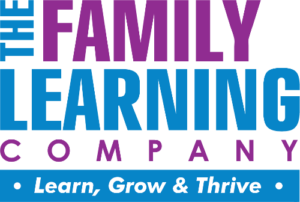Breaking Down The Role Family Literacy Plays In Adult Learning Experiences
By Peter Dublin
January 9, 2024

Family literacy is a pivotal factor in supporting adult learning, particularly in addressing challenges related to adult literacy. It involves collaborative efforts within families to enhance literacy skills across generations, ensuring a supportive learning environment conducive to continuous learning.
Adult literacy, whether due to illiteracy or insufficient reading skills, can be a significant barrier to personal and professional growth. Family literacy initiatives play a crucial role in addressing this issue by integrating adults into a comprehensive learning framework that involves the entire family.
What Is Family Literacy?
When parents are given educational support that in turn equips them with the ability to be the first teachers of their children, this module is known as family literacy. More broadly, it’s a term that describes adults and children learning together. This program provides developmental experiences for young children, while the parents are enriched with instructions that make them better and supportive caregivers of their offspring. Activities might include reading and writing together, playing an educational game, or simple interactive games that involve listening and responding.
Meeting the needs of the participants at an individual level, family literacy works on breaking culturally driven intergenerational patterns that help families develop healthier bonds built on trust, skill, and confidence. The program also extends its learning opportunities to include pre-employment and employment skills.
Why Was Family Literacy Started?
Researcher Denny Taylor was interested in understanding the diverse use of literacy within communities and their individual homes. The term ‘Family Literacy’ was coined because of that very interest. Woven into the fabric of family life, the idea is rooted in intergenerational family practices. These habits are ingrained in everyday interactions with family members across all levels of income and education. It encourages open communication on everyday observations.
The program is taken for the benefit of both parents and their children, and even extended to older living generations. The idea is to acknowledge parents’ role in being responsible and nurturing adults who can set the right examples in forming their child’s future. The program involves a varied range of skills extending from traditional literacy abilities of reading and writing to essential skills such as problem-solving and critical thinking. The foundations of the program is to build confidence, curiosity, and motivation for learning.
Creating Supportive Learning Environments:
Family literacy programs foster an environment that encourages learning beyond traditional classrooms. They incorporate activities that engage both adults and children in literacy-based tasks, such as reading activities, interactive family literacy games, and utilizing family learning software. By involving family members in learning together, these programs create a supportive atmosphere that motivates adults to improve their literacy skills.
Building Multi-Generational Learning Experiences:
Multi-generational learning is a cornerstone of family literacy. It acknowledges the diversity of ages and experiences within a family and leverages this diversity to promote learning. Adults, often hesitant or embarrassed to address their literacy gaps in formal settings, feel more comfortable participating in family-oriented learning activities. This inclusive approach not only supports adult learners but also provides opportunities for children to witness and engage in lifelong learning habits.Enhancing Parent Engagement and Model Behavior:
Family literacy initiatives encourage parents to actively engage in their children's literacy development while improving their own skills. When parents demonstrate enthusiasm for learning, it sets a positive example for children, emphasizing the value of education. By participating in family reading activities, using family learning software, or engaging in interactive family literacy experiences, adults reinforce the importance of continuous learning and literacy improvement.
Moreover, family literacy programs often provide resources and guidance for parents aiming to assist their children's literacy development. This reciprocal learning model ensures that both adults and children benefit from shared reading activities, phonics exercises, and interactive learning opportunities. For adults with limited English proficiency or those striving to improve their reading skills, these initiatives become vital stepping stones towards achieving personal and professional success.
Family literacy's impact extends beyond individual growth. It empowers adults to become more engaged in their communities, supports their integration into the workforce, and fosters a sense of accomplishment and confidence. By improving adult literacy through family-oriented programs, communities witness positive changes, such as reduced rates of illiteracy, improved reading skills, and enhanced communication among family members.
What Can Adults Learn in Family Literacy Programs?
Parenting With Continued Learning
Being a parent is tough, and parenting styles can differ. Skills to raise children are often either passed down between generations, or you learn from books, experts, observations or by experimenting with whatever works. No matter the school, it ultimately comes down to understanding the need to continuously change and evolve your parenting skills with continuous learning. Family literacy programs help in enhancing the same, in unique and interactive ways that involve their child too. This openness in communication is key in understanding and motivating each other’s individual aspirations.
Reading
Children’s first school of learning is by observation, which quickly moves on to reading. People who read in their adult years are capable of developing their knowledge and skills to further improve their way of living. This allows them to be confident, flexible, employable, and involved in everything they do. With new tools and learnings within the program, they can imbibe skills that encourage problem solving and decision-making capabilities, as well as help in regulating emotional triggers, which creates a healthy and nurturing environment for a child to thrive in.
Writing
Even after being educated, many adults have never understood a deeper and diverse utility of writing. In family literacy programs, adults can play with writing, to learn to express and communicate their thoughts and emotions to their children, fostering a healthy parent-child dynamic.
Family literacy programs ensure to recognize clear adult learning goals and integrate purposeful strategies to facilitate adult learning, in turn enabling early childhood education with a clear path to success.
In conclusion, family literacy initiatives serve as catalysts for adult learning by fostering inclusive, supportive, and multi-generational learning environments. By embracing family engagement, incorporating interactive learning tools, and addressing the diverse literacy needs within families, these programs play a pivotal role in addressing adult literacy challenges. They not only improve adult literacy skills but also instill a lifelong love for learning, benefiting individuals, families, and communities alike.
